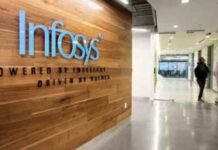
Does WFH end? Recently we have seen a couple of statements by business leaders and changes in the appraisal system to make employees work from Office. Let’s have a look below-
IBM Chief Arvind Krishna- Remote work can be hazardous to your career.
Recently IBM CEO Arvind Krishna warns employees, said return to office or lose career opportunities. Remote work can hurt the career prospects of employees, especially in managerial roles.
If you aspire to lead roles would face difficulties in getting promoted, especially to managerial positions, he added.
He said, “Remote work is more suitable for certain roles that require individual work. In the short term, you probably can be equally productive, but your career does suffer.”
“Moving from there to another role is probably less likely because nobody’s observing them in another context. It will be tougher. Not impossible, but probably a lot tougher”, he added.
He also said that I’m not forcing any staffers to come into the office just yet, but those who don’t would be hard-pressed to get promoted, especially into managerial roles.
“Working remotely is a choice that people make, but it can be changed depending on their convenience or situation. I don’t understand how to do all that remotely”, he further said.
TCS tweaks Appraisal System to make employees WFO
In the Month of January 2023, Tata Consultancy Services, in a bid to call its employees back to the office changed its appraisal system.
The tech giant has sent an email to managers and team leads in the company which read, “Goal – Return to office; Target – Average 3 days a week from the nearest TCS office. I request all the appraisers to assign the below RTO (Return To Office) goal immediately to all your team members.”
Recently while announcing its Q4FY23 Results, K Krithivasan, CEO Designate of TCS said that almost 50% of employees are coming to the office thrice a week and that the company plans to take this number to 70-80%.
K Krithivasan said, “Our stand was very clear on the way back-to-office. We want more and more people to come to work. We place a lot of emphasis and importance on what we call the TCS culture and TCS DNA.”
“And we believe that when employees work together with their mentors and leaders they imbibe that knowledge. HR is working very hard. I think close to about 50% of folks are coming at least three days a week. We’ll take it up to 70-80%,” K Krithivasan added.
ChatGPT, Open AI CEO, Sam Altman said, “Era of remote work is over”
Open AI CEO Sam Altman said that the era of remote work is over and he feels the best products are created while working from the office.
Explaining his views on the topic Open AI CEO Sam Altman said, “I think definitely one of the tech industry’s worst mistakes in a long time was that everybody (thought they) could go full remote forever, and startups didn’t need to be together.”
“There was going to be no loss of creativity. I would say that the experiment on that is over, and the technology is not yet good enough that people can be fully remote forever, particularly on startups”, he added.
He further said, “The more unclear and early the product is, the more in-person time the team needs to grind together.”
“Some of our best people are remote, and we will continue to support it always, so please don’t let hating SF stop you from applying to OpenAI! I don’t like the open-air fentanyl markets either”, he added.
“The more unclear and early the product is, the more in-person time the team needs to grind together,” he added.
WFO vs WFH
Work from Home and Work from Office both have their Pros and Cons, let us have a look at them.
The pros of WFO include the potentials for career growth, advanced training opportunities, and good social skills. And some of the cons of working from office (WFO) include increased commute time, higher costs, less flexibility, etc.
Some of the benefits of working from home (WFH) include better work-life balance, less commute stress, location independence, improved inclusivity, money savings, positive environmental impact, impact on sustainability, and a customizable office. However, there are also some cons such as longer working hours that may lead to burnout, hidden costs of WFH, and isolation and loneliness.








